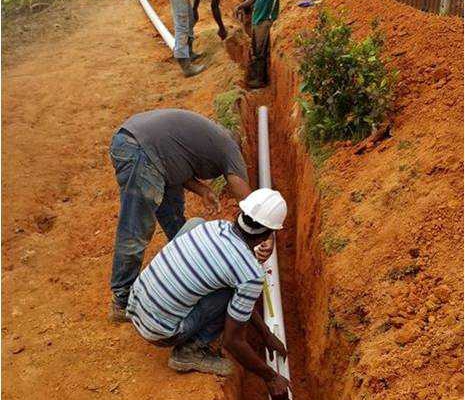Dominican Republic

The drinking water and sanitation situation still faces many challenges in the Dominican Republic, where there is still no legal or regulatory framework. The institutional framework needs to be strengthened and the level of compliance with the human right to drinking water and sanitation is deficient and leaves large gaps between the urban, peripheral urban and rural population. Continuous access to quality water and effective sanitation in the country remains an unresolved issue.
On the other hand, the country does not have complete, updated and ordered information on its water resources, making it very difficult to achieve an orchestrated planning of all water uses or to guarantee the viability of the proposed actions.
The Fund’s action guidelines in the Dominican Republic are related to governance, the implementation of the human right to water and sanitation and rural and peri-urban development, as well as strengthening the sustainability of the systems. The FCAS portfolio in the Dominican Republic is made up of six interventions, five bilateral (three of them already completed) and one managed through the IDB, all of them for a total amount of almost 37 million euros. The programmes of the live portfolio are the following:
More information
- Support for the preparation of the National Plan for the Sustainable Use of Water Resources in the Dominican Republic, Phase I (DOM-017-B), first phase with a donation of €893,700. Its implementation began in October 2020 with the official presentation of the programme at an event in which the main authorities of the sector and the Spanish embassy participated. The objective of the programme is to support the development of the National Hydrological Plan of the Dominican Republic, oriented under the IWRM approach, and to generate the necessary technological tools for its management, as well as to build capacities and provide training for its use.
- Ensure the human right to water by reducing the vulnerability of the Municipal District of Pedro García, Province of Santiago (DOM-018-B), a project approved at the end of 2020 that proposes to reduce the vulnerability of rural populations through the implementation of mitigation measures and the strengthening of the capacities of the Santiago Aqueduct and Sewerage Corporation (CORAASAN) in rural areas, to ensure the human right to water and sanitation in the face of incidents such as the one currently arising in the face of COVID-19.
- The multilateral investment programme for drinking water and sanitation in seven provinces of the Dominican Republic, with the Inter-American Development Bank (IDB) and the National Institute of Drinking Water and Sewerage (INAPA), has slowed down due to COVID-19 and the change of the country’s government. The execution rate of grant funds has reached 82%. Despite this, it is worth highlighting the implementation of an emergency plan in San Cristóbal, which has enabled the implementation of a security protocol and ensured water supply during the pandemic. This plan has integrated the planning of work and organisation of personnel to guarantee the service, that health protocols for employees are defined and implemented, including the repair of breakdowns and customer service, the dissemination of information bulletins and communication with users, and the development of tools for online payment of the service.
The beneficiary population so far is 500,000 people, and in the current phase an impact on 80,000 new families in San Cristóbal (400,000 people) is expected.

